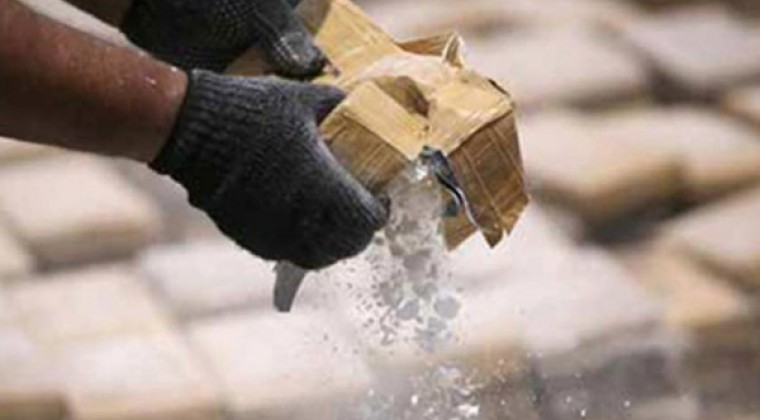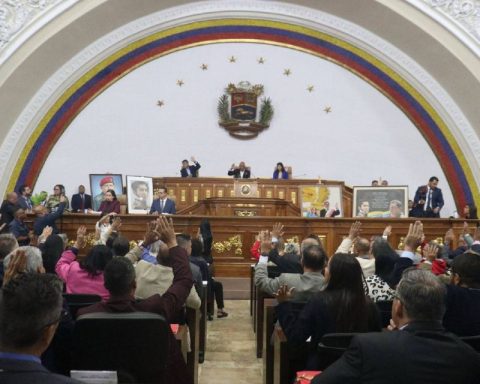A Canadian province on Tuesday decriminalized possession of small amounts of cocaine, heroin, fentanyl and other hard drugs in a sweeping policy shift to address an opioid overdose crisis that has killed thousands.
Source: AFP
British Columbia, with five million inhabitants, It is the first Canadian province to implement this measure, so far applied only in the US state of Oregon and in Portugal.
During the three years of this pilot project, adults in British Columbia who come across up to 2.5 grams of these drugsinstead of facing jail time or fines, they will receive information on how to access addiction treatment programs.
The Police will not seize your drugs either.
But hard drug dealers and dealers will continue to face criminal prosecution.
“The situation has never been more urgent,” Mental Health and Addictions Minister Carolyn Bennett said on the eve of the entry into force of the new rules, which she suggested last May could be expanded to other Canadian provinces.
British Columbia, the epicenter of this crisis in Canada, has recorded more than 10,000 overdose deaths since it declared a state of public health emergency in 2016, which is about six people a day. Nationwide, the number of deaths exceeded 30,000.
And during the first wave of the covid-19 pandemic, in May 2020, the number of overdose-related deaths in British Columbia surpassed that of deaths from the coronavirus.
The policy change seeks to remove the stigma associated with drug use that prevents people from seeking help and to foster the notion that addiction it is a health problem.
The shame around drug use “makes people hide their addiction,” said Bonnie Henry, a British Columbia public health officer. “It means a lot of people die alone.”
Kathryn Botchford, whose husband Jason died of a drug overdose in 2019, hopes the change will help people seek help.
“When I found out how he died, I thought it was a mistake. Jason doesn’t do drugs. We have three young children and he knows the risks, ”he recounted. “But I was wrong. He died just consuming an illegal substance.”
– “A start” –
Scott MacDonald, a doctor at a Vancouver clinic that was the first in North America to provide controlled heroin to his patients, believes the new policy will make people turn more to the health services “that they so often need.”
The fact that the police no longer confiscate his drugs will also reduce his stress, he told AFP.
Canada has invested more than C$800 million ($600 million) since 2017 to directly respond to the opioid crisiswhich has been largely responsible for the stagnation of life expectancy in recent years.
This includes addiction treatment, supplies of naloxone (the drug that can reverse opioid overdose), and the opening of 39 supervised drug consumption sites across Canada.
Bennett pointed to successes such as the more than 42,000 overdoses prevented at safe injection sites and more than 209,000 people referred to health and social services in recent years.
“There is no single solution to prevent or reduce overdose deaths, but this policy is a start,” he said, though he acknowledged that access to treatment remains a problem.
The criminal code waiver granted to British Columbia for the pilot project makes the province the second jurisdiction in North America to decriminalize hard drugs after Oregon did so in November 2020.
Oregon experienced a dramatic drop in arrests, and this eased the burden on the justice system, but the initiative has faced criticism because relatively few people (less than 1%) accepted offers of help treating addiction.
“His effort to keep people away (from drugs) completely failed,” Stanford researcher Keith Humphreys told AFP.
According to experts, the allocation of funds has been chaotic and incredibly slow in this state where the health system is one of the worst in the United States.
Isabelle Fortier, of the Canadian group Moms Stop The Harm, whose daughter died of an overdose in 2019, said decriminalization is a good first step, but more is needed.
“It’s not going to solve the crisis,” he told AFP. “But maybe it can help,” she added, “by preventing people from falling on a slippery slope and being further stigmatized because they have a criminal record.”

















